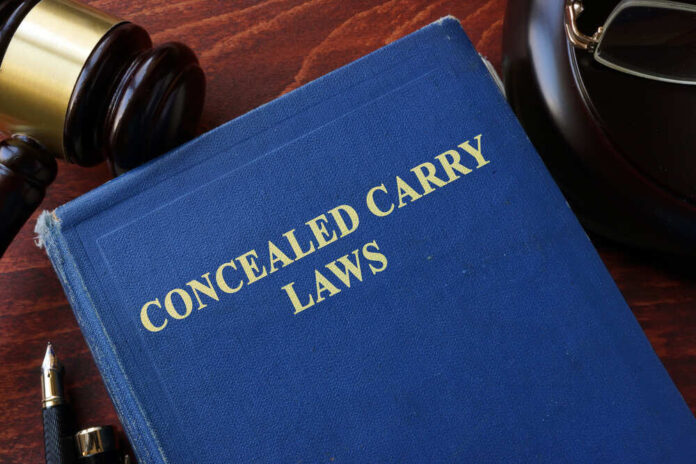
The Louisiana Senate Committee has recently given its approval to groundbreaking legislation that would grant citizens the right to carry a concealed handgun without the need for a permit. If this legislation successfully passes, Louisiana will join the ranks as the 28th state to adopt a Constitutional Carry policy, allowing individuals to exercise their Second Amendment rights without government-imposed restrictions.
“This restores the Second Amendment in Louisiana,” said McCormick.
The #Louisiana House of Representatives voted to send a so-called “Constitutional Carry” bill to the Senate on May 23. https://t.co/livo7kvLzI
— The Epoch Times (@EpochTimes) May 24, 2023
Understanding Constitutional Carry. Constitutional Carry refers to the legal provision that permits the carrying of firearms without mandatory training or licensing. While certain states may impose specific regulations on unlicensed carry, such as restrictions on who can carry or the manner of carrying, a Constitutional Carry State eliminates these requirements entirely. Some states may stipulate a minimum age of 21 for carrying firearms, while others may require residency as a prerequisite.
Revisiting Louisiana’s Constitutional Carry Bill. Nearly two years ago, the Louisiana legislature passed a Constitutional Carry bill, only to face a veto from Gov. John Bel Edwards (D). However, the momentum behind the movement has resurfaced, and the constitutional carry legislation, spearheaded by Representative Danny McCormick (R), has successfully cleared the committee.
Addressing Safety Concerns. Opponents of Constitutional Carry legislation often voice concerns about its potential dangers. However, statistics from states that have already embraced Constitutional Carry paint a different picture. There has been no notable increase in firearms accidents or violent gun-related crimes in these states. This data suggests that responsible gun ownership can coexist with Constitutional Carry policies without compromising public safety.
The Efficacy of Concealed Carry Laws. It is important to acknowledge that concealed carry laws have not proven effective in preventing criminals from carrying firearms without a license. Rather, these laws primarily hinder law-abiding citizens from exercising their right to bear arms. Moreover, the complexity and cost associated with concealed carry licensing systems discourage regular citizens from carrying firearms for self-defense purposes.
Financial Barriers and Social Equality. One significant hurdle posed by concealed carry permits is their high cost, reaching up to $150. This financial burden disproportionately affects individuals with lower incomes, preventing them from obtaining the necessary permits. Additionally, some states may require applicants to undergo costly training classes, further increasing the expenses. The process of applying for a license and attending the mandatory class can take up to two days, causing potential hardships for low-income individuals who cannot afford to miss work. Tragically, individuals from lower income brackets are statistically more likely to become victims of violent crimes, making the ability to carry a firearm for self-defense crucial.
The Growing Trend of Constitutional Carry. Currently, there are 27 states across the nation that have embraced Constitutional Carry policies. Notably, Florida and Nebraska are set to implement their own Constitutional Carry laws later in 2023, adding to the increasing number of states recognizing the importance of safeguarding citizens’ rights to bear arms.














